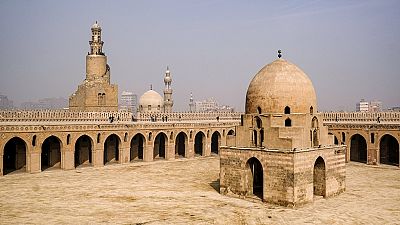Africa
Majority of Muslims across the world started Ramadan fasting today but across the Middle East, preparations for the month-long religious exercise was dampened thanks to the global threat of the novel coronavirus.
The faithful who have witnessed the cancellation of Iftar – fast breaking feasts – and the suspension of prayers at the mosque as part of efforts to slow the spread of the virus, have expressed expressed concerns over the situation.
Ahmed Hassan, a customer in an Egyptian souk – market – said: “We lost our joy this year because of the coronavirus. We used to celebrate every year and feel joy. But this year we don’t feel the joy of Ramadan because of the coronavirus, it gives me anxiety.”
Another customer, Mayad Sayer, expressed similar concerns: “Of course, the virus is affecting Ramadan this year, but the Egyptians don’t care, some will still buy lanterns.
“But of course, after the curfew, none of the bright decorations will stay lit in the streets, it’s not like every year. We can’t go out after Iftar, all this affects us, but usually people still care and go to the streets to do their shopping (for Ramadan).”
During Ramadan, muslims fast from dawn to dusk, then gather in the evening for a family or community meal before the great feast of Eid al-Fitr, which marks the end of Ramadan.
They believe it a period of reflection and socialization, during which merchants make profits. But confinement in some countries has slowed down business.
Magdy Fahmy, lantern workshop owner in Cairo said: “I only work 1% of what I used to do since this problem (coronavirus) appeared. Before, we used to work without closing, day and night, we sent deliveries to people.”
Religious authorities in several countries, including Saudi Arabia’s Grand Mufti Abdulaziz al-Sheikh, have decided that Ramadan and Eid prayers should be done at home and for the first time in modern Islamic history, the Great Hajj Pilgrimage is in danger of being cancelled.














01:16
Africa mourns Pope Francis, a voice for peace and justice
01:14
ECOWAS Meets in Ghana to Tackle Member Withdrawals
Go to video
EU foreign ministers discuss Ukraine, Syria and EU-African relations in Luxembourg.
01:58
Latin American leaders urge unity amid U.S. trade and migration tensions
Go to video
Paris hosts the 4th edition of African Cinema Days featuring Côte d'Ivoire
01:59
Tunisians observing Ramadan turn to snails as meat prices soar